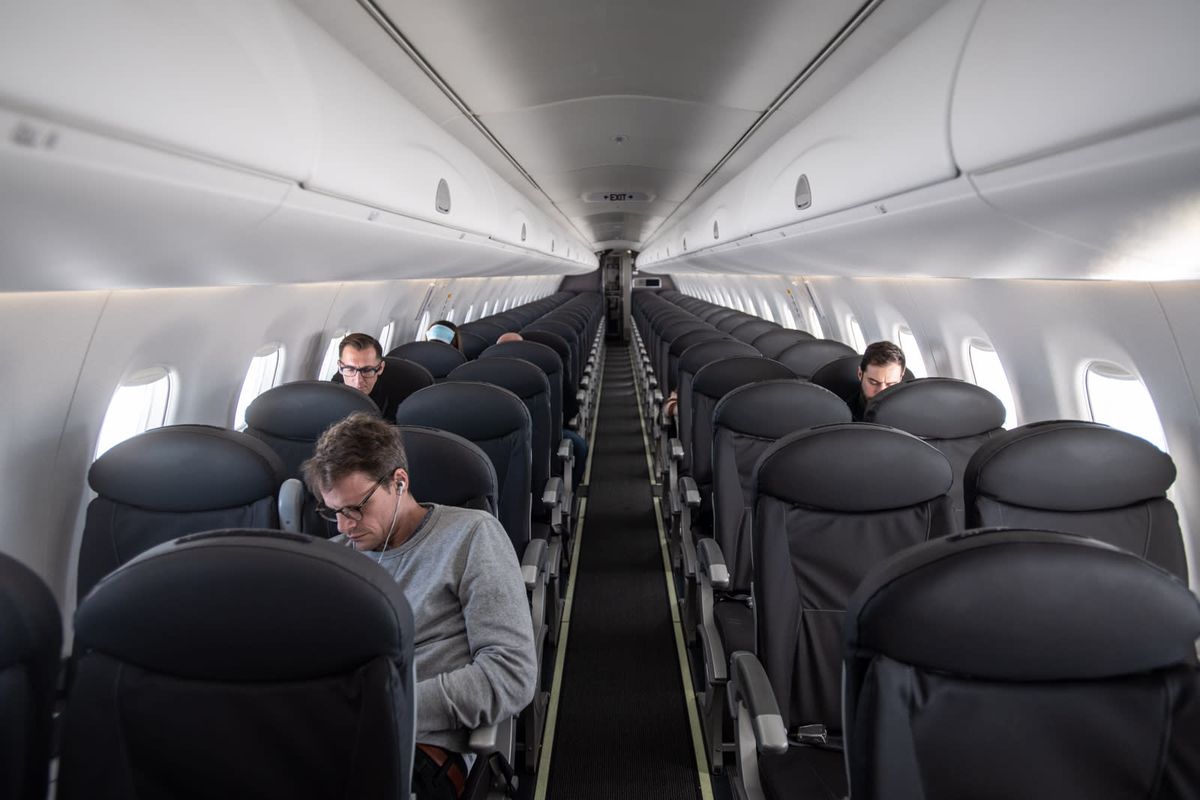Are airlines ready to rebound from the COVID-19 pandemic?

A few minutes every morning is all you need.
Stay up to date on the world's Headlines and Human Stories. It's fun, it's factual, it's fluff-free.
With daily cases of COVID-19 in the United States reportedly on the decline, the airline industry is looking to the summer months as a possible chance to rebound from losses.
The four largest airlines in the country – American, Delta, Southwest and United – have been steadily increasing the number of flights since May as passengers return to airports.
This seemingly optimistic news obscures the fact that the airlines have been hit especially hard by the pandemic and experts expect global air travel to take years to return to normal levels.
With some airlines going bankrupt and others reevaluating their business practices, it’s likely the crisis could precipitate big changes for airlines, similar to those that followed the 9/11 terrorist attacks.
The return of summer flights
As reported by CNBC on June 4, of the four biggest airlines in the US, American Airlines is making the most aggressive moves towards returning to business as usual. By July, the company expects to be back to 55% of its normal domestic flights. In May, the airline was flying only 20% of the number of flights it flew in May 2019.
The additional flights are a response to the steady increase of passengers that the US airline industry has been experiencing since the beginning of May. In April, American Airlines averaged just over 32,000 passengers. For the first three weeks of May, that number increased to more than 78,000. Between May 24 and 29, the average was more than 110,000.
In comparison to May 2019, which had 67.7 million passengers (or roughly 2.2 million passengers a day), those numbers are abysmal. But considering the unprecedented nature of the COVID-19 pandemic, airlines are taking any good news they can get.
United Airlines is not as bullish as American Airlines on its flights for July. They are expecting flights to be at 25% of the level they were at in July 2019. In total, American, Delta, Southwest and United are increasing their June flights 27% compared to May. In response to this news, airlines’ stock prices shot up.
COVID-19’s effect on the industry
These increased flight schedules may have given shareholders something to be happy about, but the future is hardly a sure thing for the industry. American and other airlines are still looking to reduce their staff by encouraging employees to take buyouts and early retirements.
On March 17, a week after the World Health Organization (WHO) officially declared the COVID-19 crisis a pandemic, CAPA (Centre for Asia Pacific Aviation, or simply Centre for Aviation), gave a grave assessment of the airline industry. In its report, it predicted that by the end of May, “most airlines in the world will be bankrupt.”
In response, CAPA called for “coordinated government and industry action.”
In the US and Europe, that action came in the form of billions in bailout money. For the US, the industry’s US$25 billion bailout came in the US$2.2 trillion Coronavirus Aid, Relief, and Economic Security Act. In Europe, €32 billion (roughly US$36.2 billion) was dispersed between dozens of national and international airlines.
Despite those tremendous amounts, some have worried that the bailouts are merely delaying an inevitable crash for many airlines. In early May, Bloomberg reported that, even with bailouts, global air travel would only be at 50-60% of its normal levels by the end of 2020. Furthermore, experts are predicting that a full recovery could take three years.
What airlines have gone bankrupt?
While many of the largest airlines in the US will likely weather the coronavirus storm – by cutting employees and restructuring – the pandemic has already brought down multiple airlines.
According to Business Insider, the first industry casualty of COVID-19 was Flybe, a British regional airline that provided domestic flights throughout the United Kingdom. Flybe had been bought out by Connect Airways, a Virgin Atlantic subsidiary, in 2019. That deal was believed to secure its “long-term future,” but the airline shuttered on March 5.
In the US, two regional airlines had gone bankrupt by the end of April. The Missouri-based Trans States Airlines, which flew routes for United, ceased operations on April 1. The company had already been set to close at the end of 2020.
Compass Airlines, another company in the Trans States Holdings stable, shut down because American Airlines, which Compass operated flights for, cut its domestic capacity in the spring.
In other countries, Virgin Australia filed for the equivalent of Chapter 11 bankruptcy in late April, while Avianca, a Columbia-based airline, filed for Chapter 11 in May. Avianca, one of the largest and oldest airlines in South America, had celebrated its 100th anniversary last year.
What comes next for the airline industry?
In the same way the airline industry was dramatically changed after 9/11, airlines and airports are already prepping for a post-COVID world.
After the September 11 attacks, passenger travel immediately dropped off. It took until July 2004 for passenger levels to reach a pre-9/11 level, and they have continued to grow since, but with more travelers using discount airlines.
In the last two decades, planes have tended to be fuller, with fewer empty seats between passengers. In a pandemic, that’s obviously not ideal. With the WHO warning that a second wave is likely, airlines are considering many steps to ensure air travel remains safe.
Suggested precautionary steps include airlines requiring passengers to take blood tests or nasal swabs, or doing a less invasive temperature check. Face masks could be required, or passengers may pay more for socially distanced seating. There are numerous possible safety measures, but it is likely that whatever is enacted could lead to increased flight prices and longer wait times at airports.
Have a tip or story? Get in touch with our reporters at tips@themilsource.com




Comments ()